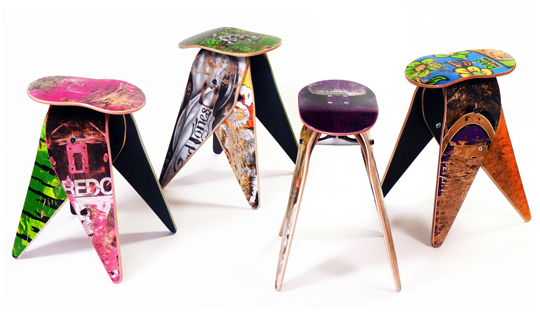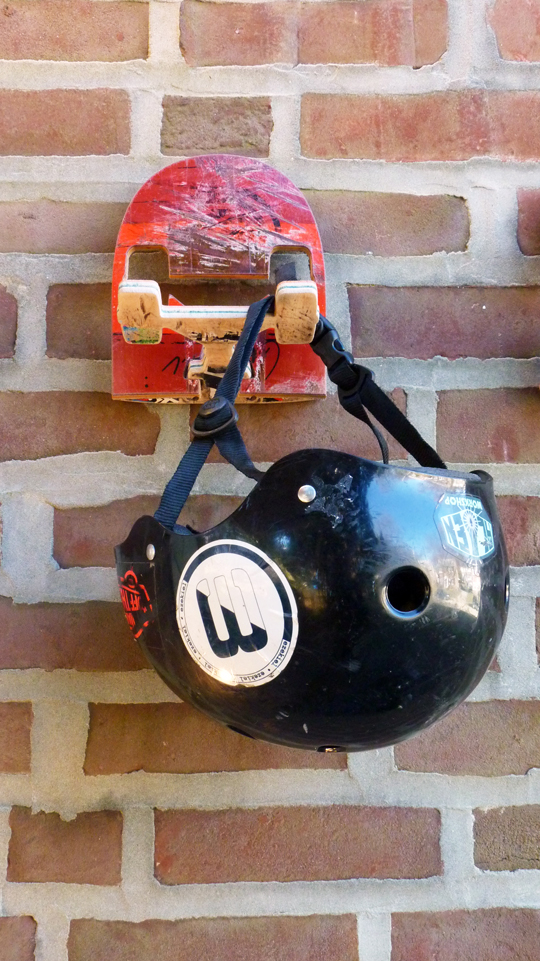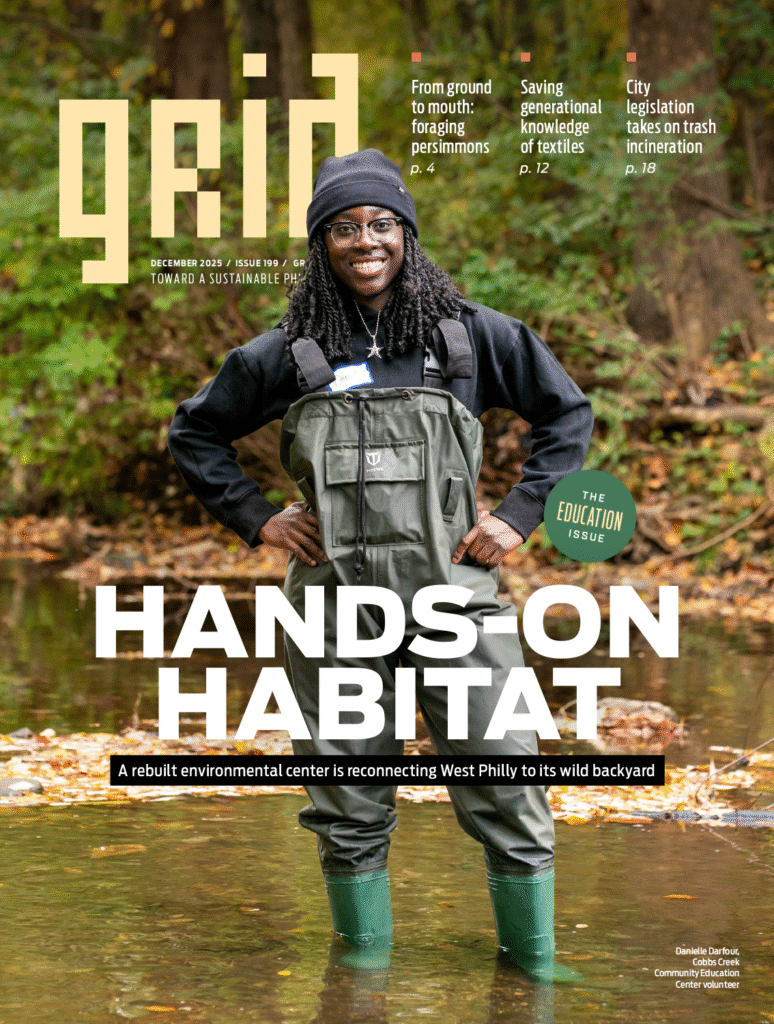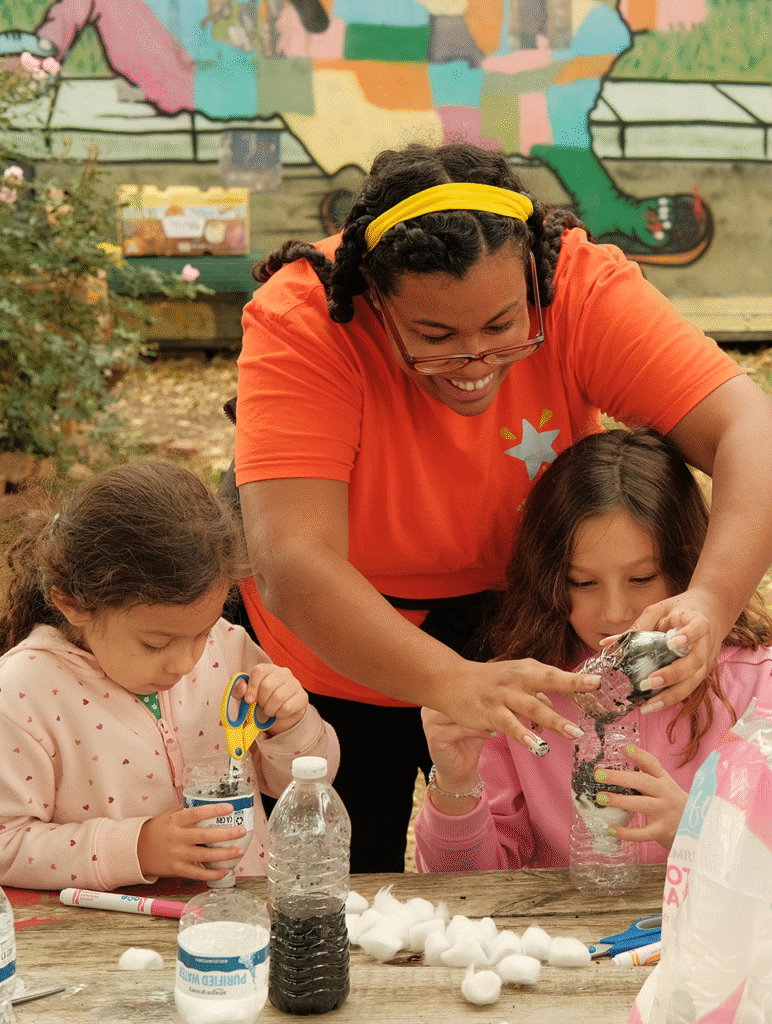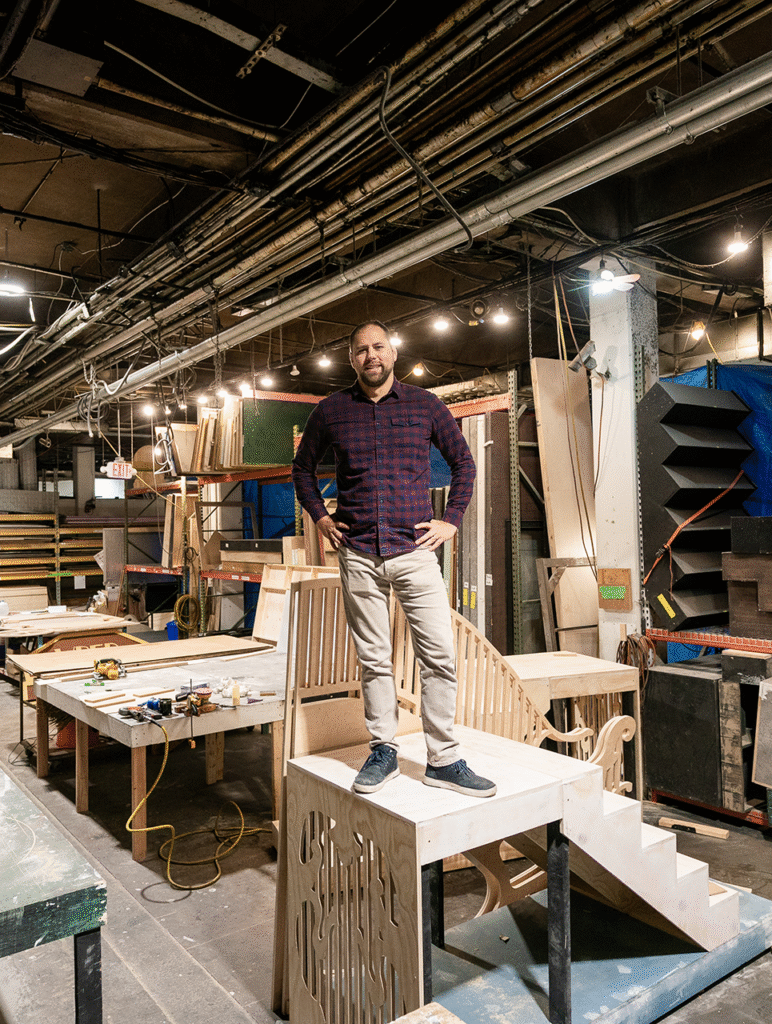Deckstool’s namesake product. | Photos courtesy Deckstool
Industrial design graduate builds sustainable business around transforming broken skateboards into furniture
by Jacqueline Klecak
Nearly all of the thousands of broken skateboards stacked at Jason Podlaski’s warehouse in Clifton Heights, Pennsylvania, are marked with scuffs and dings and graffiti. Many are broken. But they’re not headed to the landfill. Instead, Podlaski and his brother, Adam, will turn them into usable furniture for his company, Deckstool.
The graduate of the Philadelphia University Industrial Design Program created Deckstool with the aim to turn broken boards into benches, stools, hooks and clocks.
“I started the company after my brother and I designed astool using our broken boards and I found myself unemployed and disillusioned with the idea of designing more products to be manufactured out of virgin material,” Podlaski says.
Podlaski starts by sorting the boards based on size, condition and quality of the artwork. He cleans the boards, removing stickers and grime, and cuts and sands the pieces before coating and assembling them into new products. Deckstool’s primary customer base is mothers and wives of skateboarders and Deckstool can repurpose anyone’s broken or old boards into personalized furniture. Podlaski hopes to expand, but in the meantime, he is finding ways to get Deckstool’s name recognized while promoting his sustainability message.
“Broken skateboards are really quite an amazing material,” says Podlaski, a skateboarder who spends extra time on the skate ramp at the Deckstool warehouse. “[Skateboards] are a sustainable, reused material steeped in a culture that is creative, boundary-pushing and cool.”
Through the Art at the Airport program, which aims to usher more art and culture into the Philadelphia International Airport, Podlaski has a few of his pieces exhibited. At Widener University’s Small Business Development Center, students were given the chance to create a strategic marketing plan for Deckstool, teaching the students how to successfully market a real company and boosting Deckstool’s profile. Podlaski also recently co-hosted a skateboard recycling project with Converse that taught young adults how to make their own furniture.
“The energy was great and really inspiring,” Podlaski says about the event. “I would totally encourage people to do their own stuff and get creative.”



